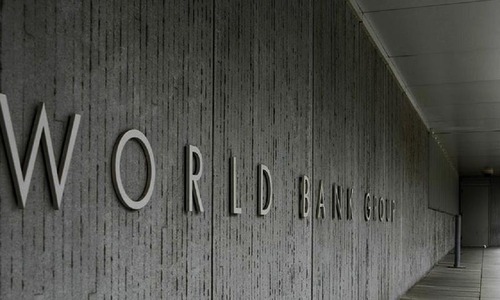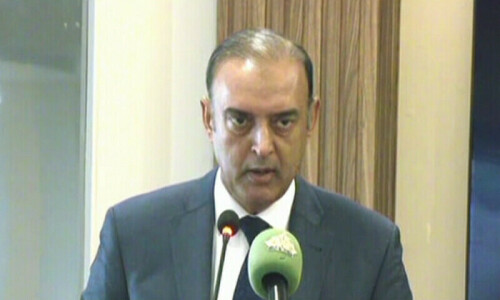A US-based think tank has called on the international community to ease restrictions on Afghanistan to avoid "state failure and mass starvation", according to a report issued on Monday.
“International actors must ease restrictions to avoid state failure and mass starvation in Afghanistan," said the report issued by Washington-based transnational think tank, International Crisis Group (ICG).
It warned that hunger and destitution in the wake of the Taliban's takeover could "kill more people than all the bombs and bullets of the past two decades".
Read more: More than half of Afghans face ‘acute’ food crisis: UN
ICG projected that up to one million Afghan children could die of starvation this winter if not helped, urging the US, Europe, and other donor nations to find ways to keep Afghanistan from imploding without endorsing the Taliban regime.
Other relief agencies have also warned that providing only humanitarian aid to Afghanistan was like a band-aid at best and that economic engagement with Afghanistan was necessary to prevent a collapse of the Afghan state,
Read more: Key aid group says Afghanistan’s most pressing need is cash
ICG, other think tanks and relief agencies have asked for a “humanitarian-plus” approach to prevent the collapse of the Afghan state. The suggested “humanitarian-plus” initiative includes providing salaries for doctors and teachers, sending hospital supplies and restoring electricity.
The report includes a statement by a UN health official in Afghanistan who warned that “stopgap solutions” will run out of money in early 2022.
“It is misleading to suggest that financial support to teachers, health care or food security workers in state institutions is somehow not entirely humanitarian,” the UN official argued.
But the report noted that a United States' diplomat disagreed with the suggestion, saying “funding with ancillary benefits to the Taliban government remains out of bounds.”
The report pointed out that “the principal arbiter of Kabul’s economic relationship with the world remains the United States” and the Biden administration was “searching for, and not yet identifying, assistance options that will entirely circumvent the country’s Taliban rulers”.
Other donors, the report added, were waiting for signals from Washington. ICG identified three main points of leverage that gave “the US an outsized role in shaping the policies of Western donors toward the Taliban regime: frozen assets, sanctions and influence in multilateral settings”.
Read more: Red Cross says Afghanistan sanctions behind 'infuriating' suffering
The US holds most of Afghanistan’s $9.4 billion in overseas assets — a major form of US leverage over a government whose central bank held few reserves locally and depended on US cash shipments.
Taliban officials told ICG that they were “negotiating” with the US for access to the frozen assets, but US officials said their conversations with the Taliban on the topic had been brief, as they “bluntly informed” the Taliban that the assets will stay out of their reach.
Noting that the US and its allies wielded substantial influence at the International Monetary Fund and World Bank, the report said that “the donors must decide whether [and how] to continue supporting the basic services financed by international aid for the past twenty years.”
US response to appeal
Responding to the appeal, the US State Department said while Washington was willing to provide more humanitarian assistance to Afghanistan, it was not yet willing to establish economic ties with the Taliban regime.
“If the Taliban are looking for a deeper relationship with the international community, including the US, it’s their conduct that we will look to in terms of devising what that might look like,” State Department Spokesperson Ned Price told reporters in Washington.
Urging the Taliban to respect human rights, educate women and girls and work for a more inclusive setup in Kabul, the US official said those were not preconditions for continuing humanitarian assistance to Afghanistan.
The US has provided $474m worth of humanitarian assistance to Afghanistan this year and would continue to do so, he said.
Price pointed out that even before the Taliban takeover, “many structural impediments” impaired Afghanistan’s economy as the international community funded 75 per cent of Afghanistan’s public expenditures, which represented about 40pc of the country’s GDP.
“In the lead-up to the Taliban takeover, we were very clear that if they pursued a military path, they would be making a choice that would … complicate our ability to continue to provide the same level of assistance that the US and the international community had delivered in the past,” he said.
The ICG, however, insisted on some economic engagement with Afghanistan, pointing out that at a recent gathering, Russia, China, Pakistan, India, Iran and the five Central Asian states made a joint plea for a UN funding conference, saying the “main burden” of Afghanistan’s collapse should fall upon the countries that deployed troops.














































